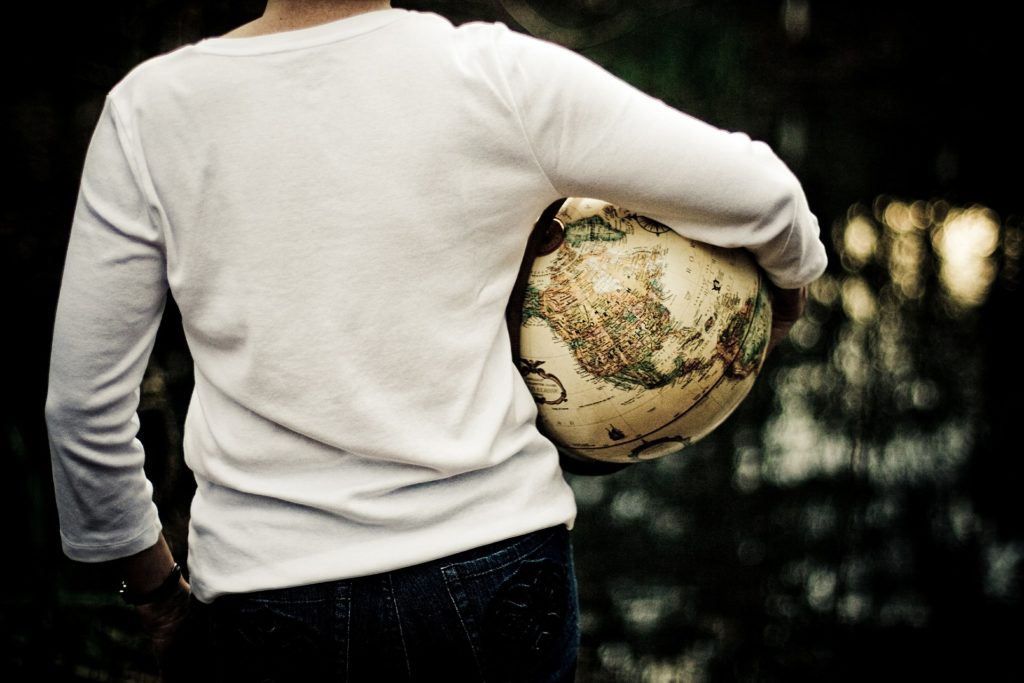- Calls to this hotline are currently being directed to Within Health, Fay or Eating Disorder Solutions
- Representatives are standing by 24/7 to help answer your questions
- All calls are confidential and HIPAA compliant
- There is no obligation or cost to call
- Eating Disorder Hope does not receive any commissions or fees dependent upon which provider you select
- Additional treatment providers are located on our directory or samhsa.gov
Overview of World Eating Disorders Action Day

On June 2nd, 2016, the first-ever World Eating Disorders Action Day took place to unite members of the eating disorder community from around the world, including professionals, advocates, policy makers, researchers, and individuals and families impacted by eating disorders.
The intention of setting aside a specific day for World Eating Disorder Action Day was meant to recognize the severity of eating disorders and the global impact of these mental illnesses. On a global level, eating disorders affect up to 70 million people, impacting susceptible individuals regardless of their race, ethnicity, socioeconomic background, gender or age [1].
The World Eating Disorders Action Day brought to light the seriousness of these mental illnesses, including anorexia nervosa, bulimia nervosa, and binge eating disorder, which are treatable, biologically-based illnesses.
Working to Support a Greater Cause
The reality is that eating disorders continue to be misunderstood and stigmatized across the globe, through mainstream media and more.
Sadly, few health care policies advocate for research funding and treatment for eating disorders, even while millions continue to struggle around the world.
By bringing together over 200 organizations from more than 40 countries and thousands of activists from around the world, a powerful force has been created as voices are raised in support of those who often struggle in silence.
Last year, the World Eating Disorders Action Day advanced the mission and vision of this organization by offering partnerships on a global level and connections for growing the cause on an international level. Organizations and activists around the world came together to create a positive campaign to change the face of eating disorders.
A tweetchat-a-thon was conducted last year in honor of this day, with participating individuals and organizations hosting 24 straight hours of live Twitter Chats, all sharing in important conversations related to eating disorders on a global level.
The virtual gathering of individuals, loved ones, activists, and professionals brought a collective voice for change. This will be repeated on June 2nd, 2017, with key messages highlighted, including advocacy for early intervention and evidenced-based treatment, advancement of the message that eating disorders are treatable at any stage or age, and more.
Understanding Key Principles
Another important aspect to the World Eating Disorders Action Day is the support and promotion for the “Nine Truths About Eating Disorders,” produced by the Academy for Eating Disorders (AED) in collaboration with Dr. Cynthia Bulik, Professor of Eating Disorders at the School of Medicine at the University of North Carolina at Chapel Hill [2].
These fundamental truths are as follows:
Truth #1: Many people with eating disorders look healthy, yet may be extremely ill. Truth #2: Families are not to blame, and can be the patients’ and providers’ best allies in treatment.
Truth #2: Families are not to blame, and can be the patients’ and providers’ best allies in treatment.
Truth #3: An eating disorder diagnosis is a health crisis that disrupts personal and family functioning.
Truth #4: Eating disorders are not choices, but serious biologically influenced illnesses.
Truth #5: Eating disorders affect people of all genders, ages, races, ethnicities, body shapes and weights, sexual orientations, and socioeconomic statuses.
Truth #6: Eating disorders carry an increased risk for both suicide and medical complications.
Truth #7: Genes and environment play important roles in the development of eating disorders.
Truth #8: Genes alone do not predict who will develop eating disorders.
Truth #9: Full recovery from an eating disorder is possible. Early detection and intervention are important.
These truths are shared and supported by a number of organizations within the eating disorder community, including the National Eating Disorders Association (NEDA), the International Association of Eating Disorder Professionals Foundation (iaedp), the Eating Disorders Coalition for Research, Policy and Action (EDC), and more [3].
Getting Involved and Participating on World Eating Disorders Action Day
If you are interested in participating in the World Eating Disorders Action Day and learning practical steps you can take to advance the mission and vision, be sure to check out their website at http://www.worldeatingdisordersday.org.
There are several different ways you can be part of the incredible advocacy work that is involved with this grassroots movement, including following World Eating Disorders Action Day and other like-minded organizations on social media, sharing key messages on your own social platforms, participating in local advocacy events, and more.
Be part of the movement to challenge the stigma surrounding eating disorders and spread messages of hope to those suffering.
 About the Author: Crystal is a Contributing Writer for Eating Disorder Hope.
About the Author: Crystal is a Contributing Writer for Eating Disorder Hope.
Crystal is a Masters-level Registered Dietitian Nutritionist (RDN) with a specialty focus in eating disorders, maternal/child health and wellness, and intuitive eating. Combining clinical experience with a love of social media and writing,
As a Certified Intuitive Eating Counselor, Crystal has dedicated her career to helping others establish a healthy relationship with food and body through her work with EDH and nutrition private practice.
References:
[1]:World Eating Disorders Day, “About”, http://www.worldeatingdisordersday.org/about/ Accessed 17 May 2017[2]: Academy for Eating Disorders, “Nine Truths About Eating Disorders”, https://www.aedweb.org/index.php/10-news/171-9-truths-about-eating-disorders Accessed 17 May 2017
[3]: “Key Messages of World Eating DIsorder Action Day”, http://www.worldeatingdisordersday.org/key-messages/ Accessed 17 May 2017
The opinions and views of our guest contributors are shared to provide a broad perspective of eating disorders. These are not necessarily the views of Eating Disorder Hope, but an effort to offer discussion of various issues by different concerned individuals.
We at Eating Disorder Hope understand that eating disorders result from a combination of environmental and genetic factors. If you or a loved one are suffering from an eating disorder, please know that there is hope for you, and seek immediate professional help.
Published on June 2, 2017.
Reviewed By: Jacquelyn Ekern, MS, LPC on June 2, 2017.
Published on EatingDisorderHope.com

The EatingDisorderHope.com editorial team comprises experienced writers, editors, and medical reviewers specializing in eating disorders, treatment, and mental and behavioral health.

